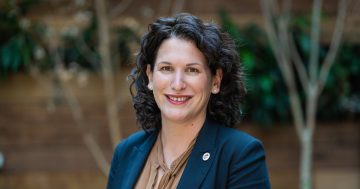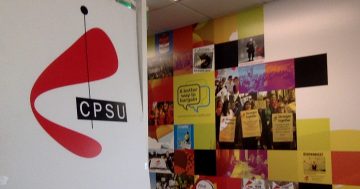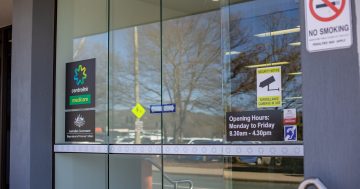
CPSU national secretary Melissa Donnelly is encouraging the introduction of practical work-from-home policies. Photo: CPSU.
The Community and Public Sector Union (CPSU) says Prime Minister Scott Morrison’s call for government employees to “get back to the office” could be a missed opportunity to create productive and innovative workplaces.
Following a meeting with the chair of the Council of Capital City Lord Mayors, Brisbane Lord Mayor Adrian Schrinner in early June, Prime Minister Morrison said getting staff back into the office would help to revitalise CBDs.
“Premiers, chief ministers and I have a very simple message, and that is it’s time to get back to the office,” he said.
Lord Mayor Schrinner said our capital city CBDs are the “beating heart of Australia’s economy” and there is “a pressing need to get people back into major central business districts”.
“If we’re going to get Australia’s economy firing on all cylinders again, we have to get people back into city centres and using public transport,” he added.
However, CPSU national secretary Melissa Donnelly said, “While there is no doubt that the public sector has delivered for our community during the COVID-19 pandemic, it has shown that working from home more than works – it has been able to deliver in stressful times.”
She said if the Australian Public Service follows Prime Minister Morrison’s advice it will “fall behind the private sector and lose a real opportunity to innovate a modern workplace”.
“The CPSU is working with members and agencies to encourage practical WFH [work-from-home] policies, such as hybrid WFH days,” said Ms Donnelly.
“We are seeing some agencies, such as the ATO, set the standard, while others such as DSS [Department of Social Services] are falling back into its recalcitrant ways, unable to learn the lessons of the pandemic.”
Prime Minister Morrison said getting staff back into the office would be “good for jobs and good for the beating heart of our cities”.
“State government employers and the Federal Government employers are saying it is time to come back to the office, and here in the ACT in particular with Commonwealth employers, we have been saying that for some time, as other states have in other jurisdictions,” he said.
“We would encourage private employers to move in that direction.”
Ms Donnelly said a 2020 UNSW Canberra and CQUniversity study found that during the COVID-19 pandemic “working from home allowed public sector workers to have more autonomy over their work, be more productive, and this was backed by the majority of managers”.
“This was a refreshing discovery,” she added.
During his presentation, Lord Mayor Schrinner told National Cabinet that while office occupancy rates had increased from the historic low experienced in 2020, there is concerning data emerging across Australia that indicates growth is plateauing.
“The working-from-home phenomena may suit many people, but we can’t ignore the fact it has an economic consequence,” he said.
Lord Mayor Schrinner has also urged national leaders to expand the use of travel bubbles, fast-track the return of international students, and deliver initiatives that would “get people back on public transport and undertaking domestic holidays”.
“We can’t afford to ignore the plight of our city centres,” he said.
“My fellow lord mayors and I are keen to work in partnership with the prime minister, premiers and chief ministers to ensure our cities return to being the fun and vibrant destinations where people are eager to live, work and play.”


















